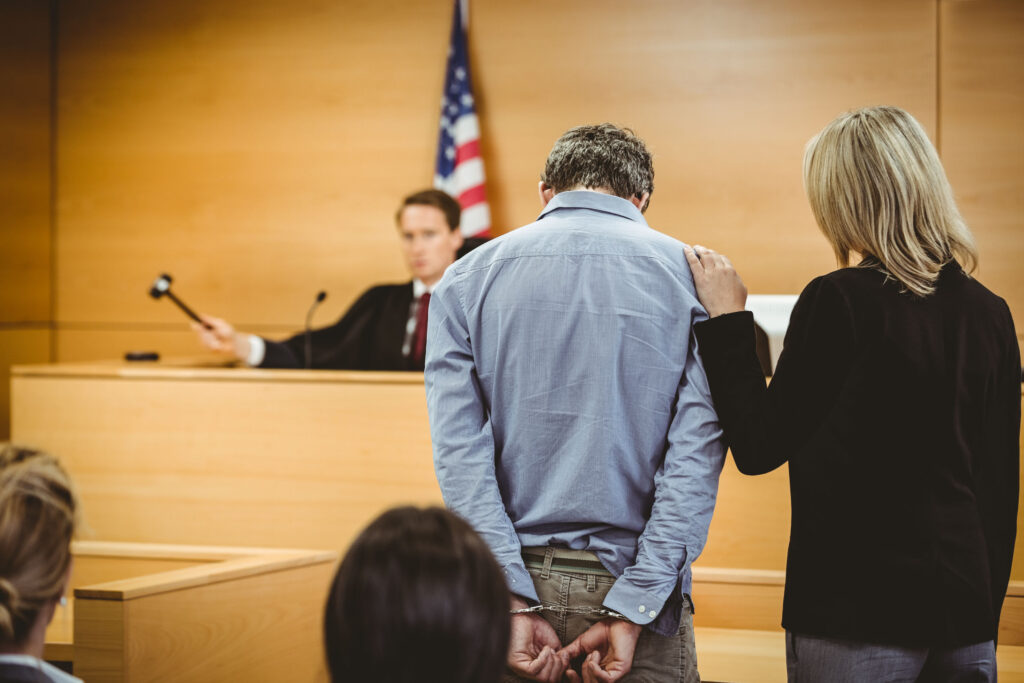If you’ve been charged with a crime in Oklahoma, your first court appearance is likely to be an arraignment hearing. This hearing marks the official beginning of the criminal process, during which the court informs you of your rights, the charges against you, and asks you to enter a plea. While it may seem simple, this hearing can impact how your case proceeds, so it’s important to understand what to expect.
What Is an Arraignment?
An arraignment is a formal court proceeding where a judge:
- Informs you of the criminal charges filed against you
- Explains your constitutional rights
- Ensures you understand the potential penalties
- Asks you to enter a plea (usually guilty, not guilty, or no contest)
- Decides on bail or conditions of release if you are in custody
This hearing happens early in the process—often within days of an arrest—and may take place in either municipal, state, or tribal court, depending on where the alleged offense occurred and your legal status.
What to Expect at an Oklahoma Arraignment Hearing
When you appear for arraignment in Oklahoma, the judge will:
- Read the Charges: The judge or court clerk will read the specific criminal charges filed by the prosecution, and the nature of those charges (e.g., misdemeanor or felony).
- Advise You of Your Rights: The judge will remind you of your rights to remain silent, to have an attorney present, and to a trial.
- Appoint Counsel (if needed): If you cannot afford a lawyer, you can ask the court to appoint a public defender.
- Enter a Plea: You will be asked to enter a plea of:
- Not Guilty: The case proceeds to the pretrial stage.
- Guilty: You admit to the charges and waive your right to trial. The judge may sentence you immediately or set a sentencing hearing.
- No Contest (Nolo Contendere): You don’t admit guilt, but you also don’t dispute the charges. This plea may limit your exposure in civil court.
- Set Bail or Conditions of Release: If you’re in custody, the judge may release you on bond, impose conditions (like no contact with victims), or hold you until trial, depending on your criminal history, the severity of the charge, and whether you’re a flight risk.
Do You Need an Attorney for Arraignment?
Yes, it is highly recommended to have a criminal defense attorney represent you at your arraignment, especially in felony cases. Your attorney can:
- Review the charging documents for legal errors
- Advise you on how to plead
- Request a reduction in bail or a release on your own recognizance
- Preserve your rights from the start
Even in misdemeanor cases, early legal representation can help protect you from saying or doing anything that might hurt your defense later.
What Happens After the Arraignment Hearing?
What happens next depends on how you plead:
- If you plead not guilty, the court will set dates for future hearings, such as a preliminary hearing or pretrial conference.
- If you plead guilty, the case may move straight to sentencing or the court may request a presentence investigation.
In felony cases, a separate preliminary hearing may occur to determine if there is sufficient evidence for the case to proceed to trial.
Arraignment in Tribal and Federal Court
Due to jurisdictional changes following the McGirt v. Oklahoma decision, many Native American defendants may have arraignment hearings in tribal or federal court instead of state court. While the procedures are similar, jurisdiction and sentencing can vary significantly depending on the court involved.
Creek County Criminal Defense Attorneys
Facing criminal charges can be overwhelming, especially if it’s your first time in court. We represent clients across Oklahoma in misdemeanor and felony cases and ensure your rights are protected at every step of the process—from arraignment to trial. Call our team at Creek County Attorneys at 918-209-3709 for a free and confidential consultation or ask a legal question here.

